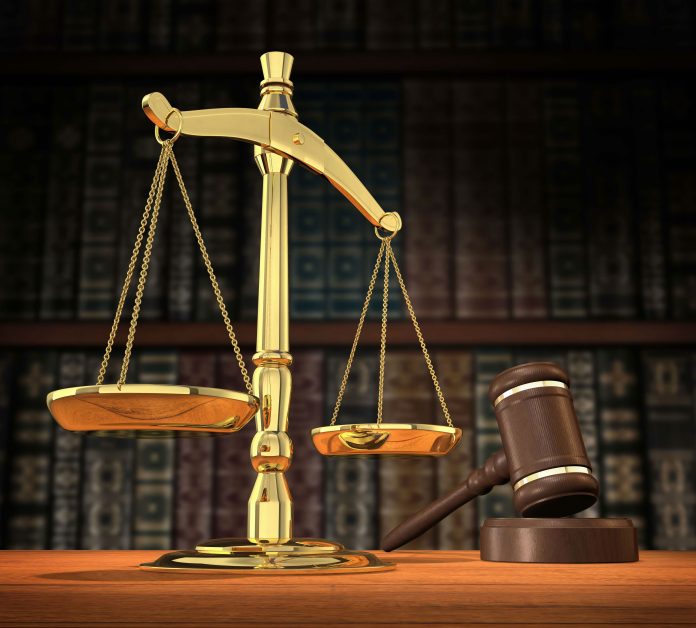This article has been written by Ishani Samajpati, pursuing B.A. LL.B. (Hons) under the University of Calcutta. The article offers a detailed discussion on the concept of an independent judiciary in general. Further, it is also discussed whether or not the Indian judiciary is truly independent. In short, the article exhaustively covers both the general and Indian perspectives of an independent judiciary.
This article has been published by Sneha Mahawar.
Table of Contents
Introduction
“There can be no difference of opinion in the House that our judiciary must both be independent of the executive and must also be competent in itself. And the question is how these two objects could be secured.” – Dr B.R. Ambedkar
Judiciary is the system of courts of law that helps to ensure the supremacy of laws in any nation. It plays a crucial role in the functioning of democracy.
Under the doctrine of separation of powers, the judiciary is one of the principal organs of the state along with the executive and legislature. While the legislature and executive is concerned with making the law and executing them respectively, the judiciary supervises whether the law is properly followed and also interprets and applies the laws in various legal issues. The separation of power further dictates that the judiciary should act independently without any outside influences.
An independent judiciary is extremely important for a democracy to prosper. Hence, it is expected that the judiciary should remain impartial and neutral. However, due to some external factors and pressure from various influential quarters, the independence of the judiciary is often compromised. Various features of an independent judiciary, why it is necessary and most importantly why the independence of the judiciary often faces uncertainty as well as the status of the independent judiciary in an Indian perspective are further explored in the article.
Concept of an independent judiciary
An independent judiciary implies that the executive and legislature should not interfere in the work of the judiciary. The judiciary is expected to be free from all the influences and interests of the government and the ruling party and should not act on its behalf. The judges, in an independent judiciary, should have the freedom to exercise the judicial powers conferred upon them without any influence, pressure or fear. The impartial judges play the most vital role to ensure the independence of the judiciary and act as a foundation of a fair and impartial system of courts.
In other words, an independent judiciary is a political principle that states that the judiciary should interpret the law and the Constitution of the respective country while being completely free from the influence of other branches of government, political parties or public opinion or any partisan interests.
The separation of powers is a fundamental guarantee of the independence of the judiciary. In the decision-making process, judges should have the freedom to decide cases impartially, in accordance with their interpretation of laws and facts. They should be able to act without any restriction, improper influence, fear or favour.
A classic example in this regard can be a landmark judgment delivered by the US Supreme Court in the case of United States v. Nixon (1974), a unanimous decision was passed against President Richard Nixon, asking him to submit the Watergate Trial Tapes, which upheld the principle of Rule of Law and subsequently reminded that even the US President is not above the law.
Similarly, in an Indian case of State Of U.P v. Raj Narain & Ors (1975), the Allahabad High Court declared the then Prime Minister of India Indira Gandhi guilty of electoral malpractices and therefore ordered to set aside the election.
The system of separation of powers has been adopted by the USA to ensure an independent judiciary. But in cases of constitutional systems based on Parliamentary sovereignty such as in the UK or India, the independence of the judiciary is mostly ensured by means of judicial supremacy.
In India, to ensure the independence of the judiciary, judges in the High Courts, as well as the Supreme Court, are appointed with very little interference from other branches of the government. Once appointed, it is also very difficult to remove a judge.
An independent judiciary is the sine qua non to ensure the vibrant democratic spirit of any nation.
Types of judicial independence
Judicial independence is mainly of two types. They are i) institutional or functional independence and ii) decisional independence.
Institutional or functional judicial independence
Institutional or functional judicial independence refers to the fact that the other organs of the government should not interfere in the judiciary by any means. It is solely based on the degree of separation of power. The judiciary is free to decide the appointments, transfers and salaries and amenities provided to the judicial officer or the judges. It is the independence of the judiciary from the other institutions or organs of the State.
Institutional or functional judicial independence includes protection from interference and freedom from influences of powerful individuals, groups and lobbies. Institutional or functional independence of the judiciary from the executive and the legislature is fundamental to the idea of rule of law.
Decisional judicial independence
Decisional judicial independence refers to the idea that a judicial officer should be impartial, neutral and free from prejudices and any biases while deciding any particular case. The independence of an individual judge is termed decisional judicial independence.
It also includes the fact that a judge should decide a case based on the concerning facts and laws only without being affected by the opinions of the media, politics, pressure or interference or influence from any quarter and fear of any penalty in their own careers.
Decisional judicial independence is again of two types. They are:
i) Substantive judicial independence which means that while deciding a case and exercising judicial powers conferred upon them, the individual judges are not subordinate to any other authority but are the law themselves.
ii) Personal judicial independence refers to the fact that judges should be impartial or neutral without any influence or fear and they should decide the case based on the facts of the case and existing laws.
Historical background of an independent judiciary
The concept of judicial independence has stemmed from the subject matter of the doctrine of “Separation of Powers”, coined by the 18th-century French philosopher Montesquieu. However, the concept of an independent judiciary was formally adopted by England in the Act of Settlement, 1701, though the concept of an independent judiciary took time to flourish.
Before the enactment of the Act of Settlement, 1701, the Judges used to hold the position as per the decision of the ruler. Like any other civil servant, the judges could also be dismissed by the Crown when decided. Thus, the judges had to act subordinately to the executive and legislature. This led the judges to favour the interests of the royal family and other influential persons. The judicial independence was secured by the Act which formally recognised the principles of security of judicial tenure, formal mechanisms for the impeachment of a judge etc. Because of the Act of Settlement, 1701, it has been possible to impeach a senior judge from office through an official address to the Queen after agreement by both Houses of Parliament.
Other common law countries such as Canada and Australia also adopted the British model of an independent judiciary.
The Act of Settlement was used as a foundation by the Founding Fathers of the Constitution of the United States to formulate Article III of the US Constitution, which acts as a base of American judicial independence.
Independent judiciary in an Indian perspective
After post-independence, the concept of an independent judiciary has been enshrined in the Constitution of India itself. The idea of independence of the judiciary was adopted from the laws of the United States of America. However, from ancient times, India had a well-maintained judicial system free from any external influences.
According to Justice S. S. Dhavan of Allahabad High Court in the essay “Judicial System in Ancient India”, “India has the oldest judiciary in the world. No other judicial system has a more ancient or exalted pedigree.”
Smritis in Ancient India stressed the need for an effective judicial system to carry out justice according to dharma. It also emphasised that the primary duty of the King was to administer the rule of law and protect the people and punish the wrongdoer. Apart from that, the Arthashastra by Kautilya also talked about the principles of judicial independence.
Ancient jurists like Manu, Yajnavalkya, Katyayana, Brihaspati etc, and later, commentators like Vachaspati Misra also stressed the fact that the judiciary should be independent and judges should solely decide a case based on facts and laws.
International instruments to secure the independence of a judiciary
Maintaining an independent judiciary has been the key focus of international instruments. Some of the most prominent international instruments are as follows:
UN Basic Principles on the Independence of the Judiciary (1985)
The UN Basic Principles on the Independence of the Judiciary was adopted on 6th September 1985 by the Seventh United Nations Congress on the Prevention of Crime and the Treatment of Offenders held in Milan, Italy.
The idea behind the adoption of the principles was to provide a framework to administer an independent judiciary in every country and enable a judge to do his duty impartially by following the principles.
The principles emphasised the selection, appointment, conduct and training of the judges since they play the most important role in running the judiciary.
Following are the basic principles which were formulated to guide the governments of the member states to secure and promote an independent judiciary:
Independence of a judiciary
- The State should guarantee the independence of the judiciary by enshrining the following in its Constitution and the laws of that country. The duty of the government is to ensure an independent judiciary by removing all interference from the organs of the government.
- On the other hand, the judiciary should observe all the cases based on facts and the concerning laws relating to the cases without being influenced. The jurisdiction of the judiciary is extended up to all judicial matters and matters contain serious questions of law.
- There should not be any kind of unsolicited interference in the judiciary and judicial decisions should not be subjected to random revision. However, an individual can always approach judicial reviews and also can appeal to reduce any sentences ordered by the judicial officers.
- Every member of society should have the right to approach the judiciary whenever required.
- An independent judiciary should ensure that the judicial proceedings are being performed without any prejudices and biases toward any of the litigant parties.
- The Member state should ensure that the judiciary has enough resources to run its function properly.
Freedom of expression and association
According to the Universal Declaration of Human Rights (UDHR), every individual has the right and freedom to express, believe and associate etc. The judicial officers, as members of the society, also have the same rights as any other common citizen. However, while exercising those rights, the judges should maintain and preserve dignity and impartiality.
The judges are also free to form any kind of association with fellow judges for representing their own interests as well as promotion of judicial independence.
Qualifications, selection and training of the judicial officers
The judicial officers should be persons with high morale and integrity as well as should have appropriate qualifications in law and proper training.
The selection of judicial officers should not be done following any method with “improper motives”.
The judges should be selected based on their qualifications and should not be discriminated against on any grounds such as “race, colour, sex, religion, political or other opinions, national or social origin, property, birth or status”. However, the candidate should be a citizen of the concerned country and this requirement should not be termed discriminatory.
Conditions of service and tenure
The conditions of service and tenure of the judges such as the term of office, security, salary and pensions and also the age of retirement should be secured by the law.
The appointed or elected judges should have a particular retirement age or the end of the term as a judge.
The promotion of the judges should be based on the ability, integrity and experience of an individual judge instead of any other preferences.
The internal judicial administration should decide the types of cases to be assigned to a particular judge.
Professional secrecy and immunity
In the judiciary, the maintenance of professional secrecy should be prioritised. Under no circumstances, a judge should be forced to testify any confidential information other than the information acquired in public proceedings.
Judges, while exercising their judicial powers, should have personal immunity from civil suits for monetary damages. However, any disciplinary proceedings, right to appeal or the compensation provided by the State are not subject to this.
Discipline, suspension and removal
In case of any complaint against any judge, he should have the right to a fair hearing. The complaint should be examined ‘expeditiously’ and be kept confidential initially.
A judge should only be suspended or removed in accordance with proper judicial conduct only if he is found unfit to discharge concerned duties.
However, these should be subjected to an independent review. But it is not applicable in cases of the decisions of the highest court and in impeachment.
Bangalore Principles of Judicial Conduct (2002)
The Bangalore Principles of Judicial Conduct (2002) was officially adopted at the Peace Palace in The Hague, Netherlands. The Principles established the basic ethical standard for working of the judiciary and provided a framework of judicial conduct. It dealt with six mandatory ethical values namely judicial independence, impartial discharge of judicial duties, integrity, propriety, equal treatment to all and lastly performance of judicial duties with competence and due diligence and the ways to implement them.
Latimer House Principles
Latimer House Principles (2008) are the principles adopted by Commonwealth countries dealing with the three branches of the government. It also emphasises the independence of the judiciary to strengthen democratic values.
The necessity of an independent judiciary
Judiciary is the most important organ of the government and it keeps the overreach and abuse of power by the Executive and Legislature in check. Judicial independence is vitally important in a democracy. Individual judges and the judiciary as a whole must be impartial and independent of all external pressures and of each other so that those who appear before them to seek justice and the public, in general, can have the confidence that their cases will be decided fairly and in accordance with the law.
While carrying out their judicial function, judges must be free from any improper influence. Such influence can come from any number of sources such as the executive, legislators, the media as well as the particular litigants, especially the particular pressure groups.
The responsibilities of individual judges have increased with the growth in the role of the government in our daily lives over the last century. Disputes between the citizens and the state have also increased together with the growth of governmental functions. Now, the judiciary, apart from providing justice, also protects the common citizen from the unlawful acts of the government. Thus, the requirement for an independent judiciary has increased ever since.
An independent and impartial judiciary is one of the cornerstones of democracy and this principle was endorsed by the UN General Assembly in 1985 and 1990.
Judicial independence in India
In the post-independent era, the concept of judicial independence has been enshrined in the Constitution of India itself. There are several constitutional provisions that help in securing the independence of the judiciary. The provisions are discussed below:
Security of the tenure of judges
Article 217 of the Constitution states the conditions and appointing a judge of a High Court. Once appointed, the Supreme Court and high court judges have the tenure to continue their services until reaching the age of sixty-five years and sixty-two years respectively.
However, the age of retirement of the High Court judges was proposed to increase to 65 through the Constitution (114th Amendment) Bill, 2010. But it was not passed.
Article 124(2) lays down that the President should appoint every Supreme Court judge and they will remain in office until the age of sixty-five years.
For the appointment of the judges in the High Court and Supreme Court, the President shall consult the Chief Justice of India and here consultation means concurrence and this was held in the case of Supreme Court Advocates on Record Association v. Union of India (1993), also known as the Second Judges Case (1993).
Salaries and Allowances of judges
Article 125 of the Constitution of India deals with the salaries and allowances of judges. The salary is specified in the Second Schedule and may be decided to change by the Parliament by law.
In the cases of judges in the Supreme Court, their salaries are provided by the Consolidated Fund of India and the judges of the High Court of the respective states are paid by the consolidated fund of that state.
Powers and Jurisdiction of the Supreme Court
Under Article 32, the Supreme Court of India has the power to issue writs and an individual may move to the Supreme Court to access proper justice. Though the Parliament can change the pecuniary jurisdiction in civil matters, it cannot curtail any powers of the Supreme Court.
No discussion of judicial conduct in the Parliament or state legislatures
Article 211 of the Constitution states that there should be no discussion of the judicial conduct of any High Court or Supreme Court held in the Legislature of a State.
Contempt of Court
Under Article 129, the Supreme Court has the power to punish for contempt of itself. Similarly, Article 215 confers the power to the High Court to punish for contempt.
Complete independence of the judiciary
Article 50 of the Constitution ensures complete independence of the judiciary and frees it from executive control. It contains one of the Directive Principles of State Policy and states that the state shall take steps to separate the judiciary from the executive.
One of the most recent and landmark cases regarding judicial independence is the case of Supreme Court Advocates-on-Record Association and another v. Union of India (2015), the constitutionality of the Constitution (99th Amendment Act), 2014 was challenged by the Supreme Court Advocates-on-Record Association. The amendment sought to form the National Judicial Appointment Commission (NJAC) to appoint judges. National Judicial Appointment Commission would have been a body containing the following six persons:
- Chief Justice of India acting as ex officio Chairperson;
- Two other senior judges of the Supreme Court acting ex officio;
- The Union Minister of Law and Justice also acting ex-officio; and
- Two eminent persons are to be selected by a committee consisting of the Chief Justice of India, Prime Minister of India, and Leader of Opposition in the Lok Sabha for a period of three years once only. One such person would be from the Scheduled Castes or Scheduled Tribes or OBC or minority communities or a woman.
The Supreme Court held it unconstitutional and struck it down since the amendment is a threat to the independence of the judiciary.
Challenges to judicial independence in India
An independent judiciary cannot be taken for granted. It is important to keep in check that the judiciary is not politicised and is free from political influences as much as possible. Otherwise, judicial independence will be at stake. The basic challenges faced by the judiciary are as follows:
Possible biases
It is expected that the judges should be completely impartial and free from biases while declaring any verdict. The maxim Nemo Judex In Causa Sua originated from this idea. It means ‘no one should judge their own cause’ because this is the main reason for biases.
However, there are mostly three types of biases of the individual judge which may hamper the impartiality of judicial proceedings. The biases are listed below as follows:
- Personal bias in the judiciary is the bias created due to a relation (friendship, grievance or egoism) between both the parties, adversely affecting the verdict. In the case of Nanjundappa (B.N.) vs State Of Mysore (1964), the Karnataka High Court declared that while appealing a case on the ground of personal bias, it must be proved effectively.
- The issue of pecuniary bias arises when the deciding party has any kind of monetary or financial interest in the subject matter of the dispute.
- Subject matter bias arises when the authority is directly involved in the subject matter of the case. In the case of M/s Chetak Construction Ltd. v. Om Prakash & Ors. (1998), the court set aside an impugned order and assigned the appeal to another judge to decide without being influenced.
Judicial corruption
Judicial corruption is the exertion of inappropriate influences and situations which affect the impartiality and neutrality of the judicial system. An increase in judicial corruption leads the general public to lose their trust in the judiciary and weakens public morale.
According to the Central government, over 1600 complaints have been received on the functioning of the judiciary, some of which are on judicial corruption.
Influence of political parties
Political influences on the judiciary are a matter of grave concern. The political parties often try to malign and disparage the Indian judiciary for personal and political interests. The members of any political party often interfere to stop the working of the judiciary if their interest is not satisfied. Recently, the members of the ruling party in West Bengal protested in front of the court of a judge in Calcutta High Court and blocked the litigants from entering the courtroom, apparently because they were not satisfied with the judgements passed by the Hon’ble judge.
Security issues while discharging judicial duty
The judges are also human beings and naturally, they are concerned with the safety and security of their families. It is not uncommon for a judge to receive threats for the honest discharge of judicial duties.
Life-threatening situations faced by individual judges for mere discharging of judicial duties are not uncommon. There have been several instances where a judge has been murdered in open daylight for passing an unfavourable verdict.
In 1989, Justice Neelkanth Ganjoo, a judge in the Jammu & Kashmir High Court was assassinated by militants. In 2021, Additional Sessions Judge Uttam Anand in Jharkhand was brutally murdered in an open street. The Supreme Court took suo moto cognisance of the issue of the safety of judges and the persons involved in his murder have been awarded rigorous life imprisonment till death. These incidents raise serious concerns regarding the safety of the judges while performing their judicial duties.
Interference of other two organs
Even though the doctrine of separation of powers is followed in India, the other two organs of the government often try to encroach on and limit judicial powers. Alternatively, the judiciary also tries its best to keep the executive and legislature in check. However, the functional overlap of the organs may take place sometimes which hampers the impartial working of the judiciary.
Lack of transparency in the appointment of judges
The appointment of a judge is done following the collegium system in India to safeguard judicial transparency. However, there are flaws in the collegium system that need to be rectified. Former Chief Justice P.N. Bhagwati, known for introducing Public interest litigation (PIL) was not satisfied with the collegium system for appointing the judges because of the involvement of the Executive. A former Supreme Court judge AK Sikri stated that the appointment of judges is mostly done based on personal “impressions” rather than the qualifications and integrity of the individual judge.
Influence on the judiciary from powerful quarters
The influence exerted by powerful quarters for personal and private gains greatly hampers the working of the judiciary. Examples of offering bribery to judges are very common. A Senior Civil Judge Rachna Tiwari Lakhanpal of Tis Hazari Court, Delhi and her husband have been booked by the CBI for disproportionate assets under the Prevention of Corruption Act. Apart from that, the personal political or ideological influences of the individual judges may affect the nature of the verdict passed.
Conclusion
Judiciary is often termed as a ‘fragile bastion’ as there are apprehensions that the impartiality and neutrality of the institution and the personal integrity of an individual judge may crumble owing to the outside influences and pressures it has to face. An independent judiciary is the base of a thriving democracy and acts as the last recourse for people to secure justice. It is important to remember that the ultimate responsibility to maintain the independence of the judiciary is on the shoulders of the individual judges.
At the end of the day, it must be remembered that the independence of the judiciary is an indispensable requirement to uphold the rule of law. That is why the government and media rhetoric that aims to villainise the judiciary should be of great concern.
Despite all the existing flaws in the judicial system, it serves as the last recourse for common people to seek justice. Without an independent judiciary, a democracy cannot function properly since there will be no institution to protect and supervise the rights of the common people. Hence, the independence of the judiciary must be upheld at any cost.
References
- https://www.ohchr.org/en/instruments-mechanisms/instruments/basic-principles-independence-judiciary
- https://www.judiciary.uk/about-the-judiciary/the-judiciary-the-government-and-the-constitution/jud-acc-ind/independence/
- https://mckinneylaw.iu.edu/iiclr/pdf/vol10p245.pdf
- https://www.allahabadhighcourt.in/event/TheIndianJudicialSystem_SSDhavan.html
- https://timesofindia.indiatimes.com/blogs/toi-edit-page/blurring-lines-of-separation-judiciary-must-remain-independent-to-safeguard-peoples-constitutional-protections/
- https://rdi.org/defining-democracy-independent-judiciary/
- https://www.legalserviceindia.com/legal/article-1681-independence-of-the-judiciary-a-constitutional-response.html
- https://theprint.in/opinion/indian-politicians-get-favourable-outcome-in-courts-when-party-is-in-power-data-shows/283103/
- https://www.prsindia.org/theprsblog/can-supreme-court-ask-government-frame-law
- https://thewire.in/law/restoring-public-trust-in-the-indian-judiciary-calls-for-more-scrutiny-not-less
- https://www.jurist.org/commentary/2020/05/arpit-richhariya-indian-judiciary-independence/
- https://www.ideasforindia.in/topics/governance/the-politics-of-post-retirement-appointments-corruption-in-the-supreme-court.html
Students of Lawsikho courses regularly produce writing assignments and work on practical exercises as a part of their coursework and develop themselves in real-life practical skills.
LawSikho has created a telegram group for exchanging legal knowledge, referrals, and various opportunities. You can click on this link and join:
Follow us on Instagram and subscribe to our YouTube channel for more amazing legal content.
 Serato DJ Crack 2025Serato DJ PRO Crack
Serato DJ Crack 2025Serato DJ PRO Crack














 Allow notifications
Allow notifications


